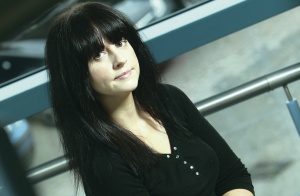Role: Clinical Research Manager
Company: Heartsine Technologies
Track Record:
“With cardiopulmonary resuscitation (CPR) alone, survival rates after sudden cardiac arrest are less than 5%, but when you combine CPR with the use of a defibrillator, then survival rates can increase to as much as 70%. It’s an incredible statistic,” says Rebecca.
What does your job entail?
My job is clinical research manager at HeartSine Technologies, which is the only company to design, develop and manufacture Automated External Defibrillators (AEDs) in the UK or Ireland.
Sudden Cardiac Arrest (SCA) kills more people every year in the UK than lung cancer, breast cancer and Aids combined — about 270 people daily — so research into cardiac technology is vital.
My role in developing the life saving devices involves lab work, including clinical studies and usability testing, as well as risk management meetings.
My role in developing the life saving devices involves lab work, including clinical studies and usability testing, as well as risk management meetings.
I also publish and present key industry findings at international conferences.
Is it 9-5?
The role is generally nine to five but, as there is a lot of research into improvements in the technology, there is additional work and travelling involved.
In November 2013 I attended a major American Heart Association Conference in Texas where more than 18,000 cardiovascular experts from 105 different countries discussed the most cutting edge developments in life-saving equipment.
It was a fantastic experience and it was an honour to meet so many different clinicians, scientists and academics in this field from across the globe.
How did you get into this line of work?
I completed a degree and PhD in biomedical engineering and in my placement year of my undergraduate course, I was employed by HeartSine Technologies Ltd.
When I returned to university for my final year, I collaborated with HeartSine on a defibrillation project involving clinical research and was appointed to the clinical department in 2006.
Outline your career to date?
I was initially appointed clinical research specialist at HeartSine Technologies and promoted to clinical manager a few years later due to growth in the department and increased product portfolio and sales.
Since then I have been fortunate to collaborate with world experts in the field and present at international conferences as well as initiating clinical studies.
Tell us about your qualifications/training.
I have a BSc (Hons) Degree in biomedical engineering and a PhD in bioengineering from University of Ulster.
I have completed additional professional training.
What qualities are required for your job?
You need to be a good listener, motivated and most importantly, ensure you are inclusive.
The medical industry is multidisciplinary and therefore every decision must involve the right experts.
What are the biggest rewards and challenges of your work?
Part of my role is to study the most effective and advanced treatments of cardiac conditions.
Cardiac technology is continually evolving, so it is extremely important we have the most up to date research.
While this can be challenging, it is also extremely rewarding to know that our defibrillators, which are distributed to over 40 countries, are saving lives across the world every single day.
For example, with cardiopulmonary resuscitation (CPR) alone, survival rates after sudden cardiac arrest are less than 5%, but when you combine CPR with the use of a defibrillator, then survival rates can increase to as much as 70%.
It’s an incredible statistic.
What do you like to do in your spare time?
I have many interests including cookery, and keeping fit by regularly walking and running.
Tell us an interesting fact about yourself.
I was recently elected to the International Society for Computerized Electrocardiology (ISCE) Board, which is a prestigious international research board.
I’m the first female engineer and the youngest person ever on the board, a huge honour for both myself and for HeartSine.
There are only 15 people on the board from across the world.
Who has inspired you most in your life?
Professor Jennifer Adgey is a key inspiration.
She was a cardiologist who worked at the Royal Victoria Hospital for 40 years.
She saved hundreds of lives, wrote two books and published 250 scientific papers.
She was a crucial figure in promoting the use of portable defibrillation.
The late Professor John Anderson was also extremely inspirational.
He led the way in developing technology not to restrict the use of defibrillators to hospitals.
Belfast is the birthplace of the portable defibrillator.
I am extremely honoured to carry on the tradition of working at the forefront of cardiac technology here.


